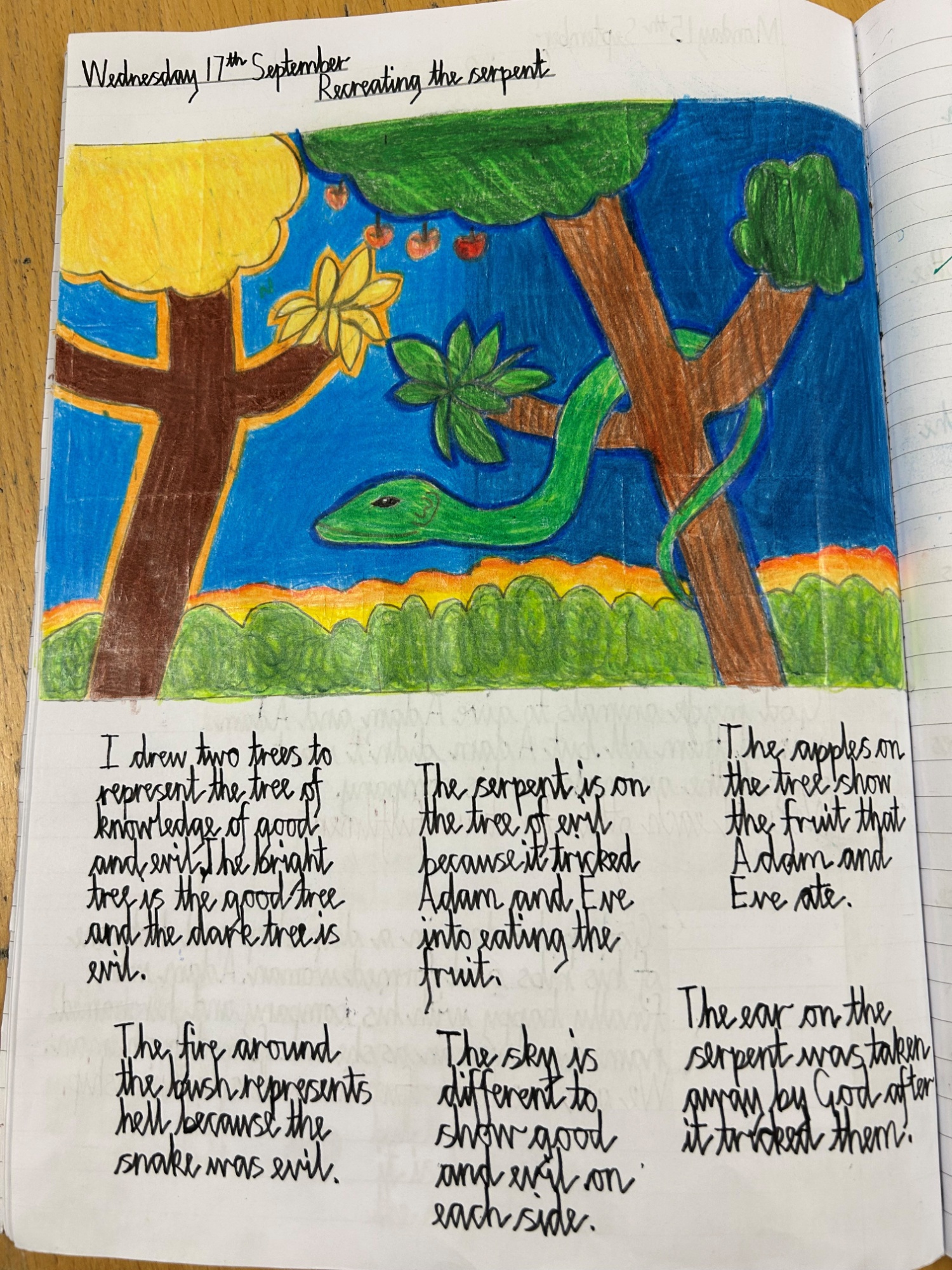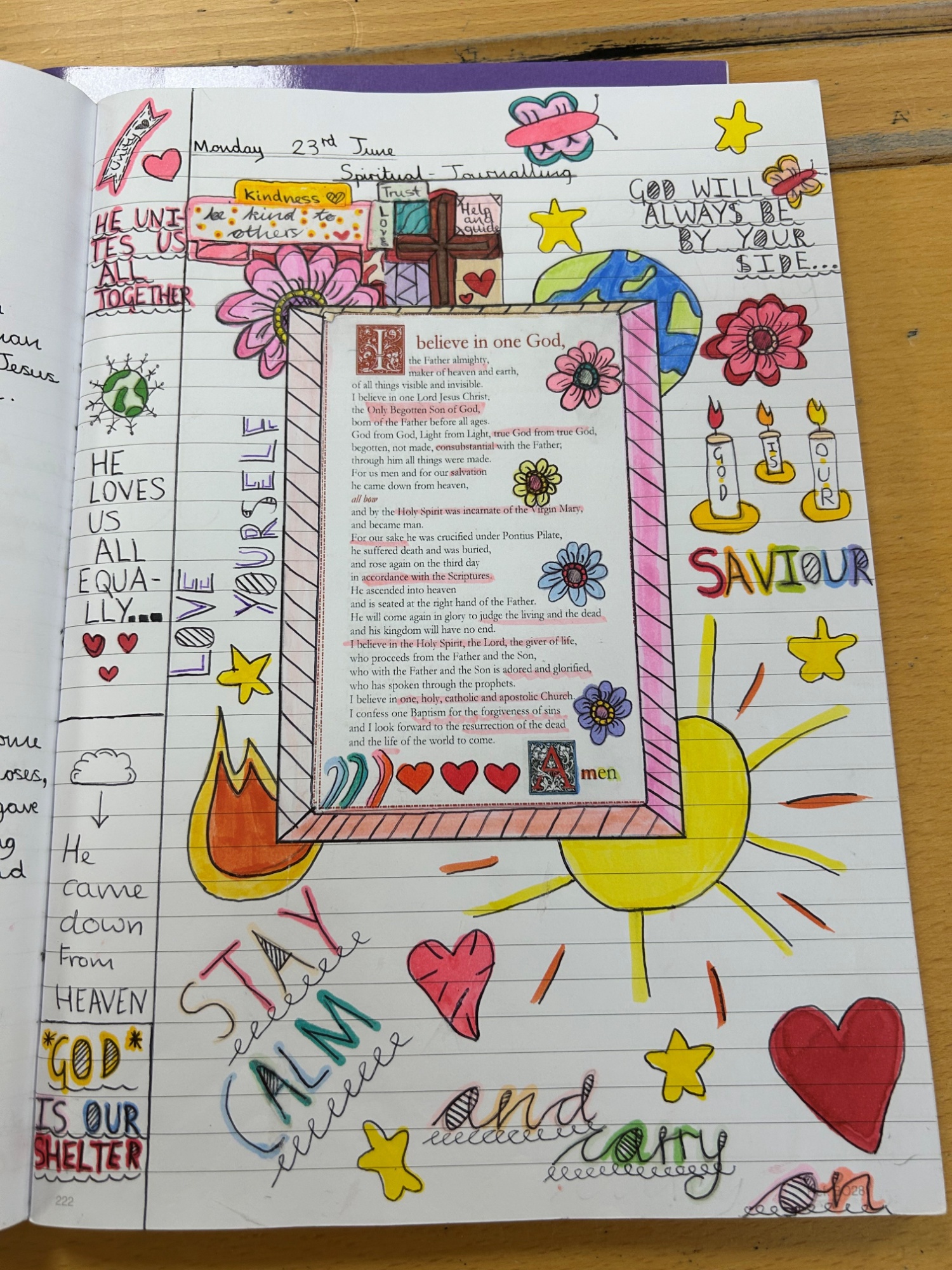
Curriculum
Mission Statement
With God as our shelter and Christ as our guide, the mission of St Bernard’s Preparatory School is to educate towards love and service to God, each other and the wider community. Through our broad balanced curriculum, we will develop an understanding of each faith and the values we share. We will treat each person with respect, knowing we are special and unique.
St Bernard’s is part of the St Benedict’s family of schools. All schools in the group share a similar Catholic and Benedictine/Bernardine ethos.
Children’s Mission Statement
We follow in God’s footsteps through our love, our work and our prayer.
In the light of our school mission statement, RE is taught at St. Bernard’s Preparatory School to establish an awareness of the Christian faith through Catholic worship, celebration and prayer within the curriculum as a natural part of school life. Together with parents and parishes we work in partnership to educate our children within a Catholic context, communicating the message of Jesus Christ, whilst drawing connection between differing faiths as part of valuing and respecting the religious and cultural diversity of our school family.
We wish our school to be a community of faith in which each member participates, fully aware that all our work and aspirations derive from God.
We believe that the ethos of our school is of prime importance, as children are sensitive to and learn from the atmosphere, ethos and attitudes within the school. Our aim is to permeate all facets of education in our school with gospel values, creating a Catholic Christian community, where all educational goals are rooted in Christ and his gospel and we are reflecting God’s purpose in our undertakings. We are supported in this by being part of the extended Benedictine Community.
Aims
We aim to ensure that:
- We will help children to know, love and worship God, as Father, Son and Holy Spirit and to know and love Jesus Christ and his gospel.
- The children develop their faith in the light of Scripture, tradition and the teaching of the Church.
- There is an appreciation of other world faiths through an appropriate knowledge of their principal beliefs, spiritual values and traditions.
- We will take seriously issues such as justice, peace, racism and disadvantage in the multi-cultural society we live in, in the light of the gospel values. We will guide our children’s concerns from self-interest to those that involve the problems of society as a whole.
- Religious Education addresses all children in our school. We aim to take into account the religious and educational needs of our children from supportive Catholic homes, those for whom school is their first experience of Church, those from other Christian traditions and those from other faith backgrounds.
- As a school we will proclaim and celebrate the Religious Education of our children by providing shared opportunities for celebration, prayer and reflection in implicit and explicit ways.
- A spiritual dimension is given to the lives of the children and that the liturgical year is reflected in the life and activities of the school.
- Positive attitudes towards people of other faiths and other religious traditions in relation to God are respected and valued.
- Children are actively involved with their learning.
Objectives of Religious Education
- To develop a knowledge and understanding of the mystery of God, of Jesus Christ and the Church and of the central beliefs which are held by Catholics.
- To develop an awareness and appreciation of the Catholic faith and of how it affects personal and social behaviour.
- To foster appropriate attitudes.
- To educate the whole person and to find a balance between knowledge of doctrine, response to worship and personal and social development.
Curriculum Planning


The curriculum is both WHOLE and HOLY. This is what makes our school distinctive. Everything ultimately comes from God. All subjects are effective by the belief in God and to look at all policies in relation to Religious Education. The truth of each curriculum area is respected. The growth and development of each child is respected as seen through continuity and progression, assessment, recording, reporting and evaluating.
The use of religious questioning enables More Able and Talented children to deepen and challenge their thinking and assists SEND children in embedding new learning. The use of ‘next steps’ or ‘even better if’ enables all children to make progress and move forward on their learning journey.

